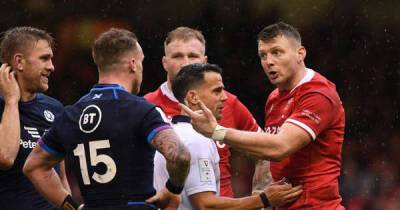When England and Scotland players took the Calcutta Cup out on the town
The 1980s were not kind to England rugby fans. After winning the grand slam in 1980, travelling supporters had a series of weekends in Edinburgh, Cardiff, Dublin and Paris ruined by rugby matches. England won only two away matches in the Five Nations between 1981 and 1987, the last of which came in Paris in 1982. The start of the 1988 competition did not improve matters. They lost in Paris to extend their poor away run and were then beaten by Wales at Twickenham. The new partnership of manager Geoff Cooke and coach Roger Uttley had a big job on their hands.
England had not yet scored a try in the championship by the time they went to Scotland on 5 March 1988, so they made a few changes. Simon Halliday came in at centre; Rob Andrew returned at fly-half; Chris Oti made his debut; and the captaincy was handed back to scrum-half Nigel Melville as the visitors went in search of their first win at Murrayfield since 1980.
Scotland were the favourites, having beaten France 23-12 in their previous match in Edinburgh, but England suffocated their opponents and won a dull game 9-6. They still hadn’t scored a try but they secured the victory courtesy of a drop goal from Andrew and two Jon Webb penalties. It helped that Gavin Hastings was only successful from two of his seven kicks. “The Scots blundered gamely towards a dour defeat, allowing England to take the game by a process of attrition, rather than imposing a match-winning range of technical skills,” wrote Robert Armstrong in the Guardian.
The Scotland coach, Derrick Grant, was one of many dissenting voices after his team’s defeat. “England may have been the birthplace of rugby but today they effectively killed the game stone dead,” Grant said, before announcing that he would







